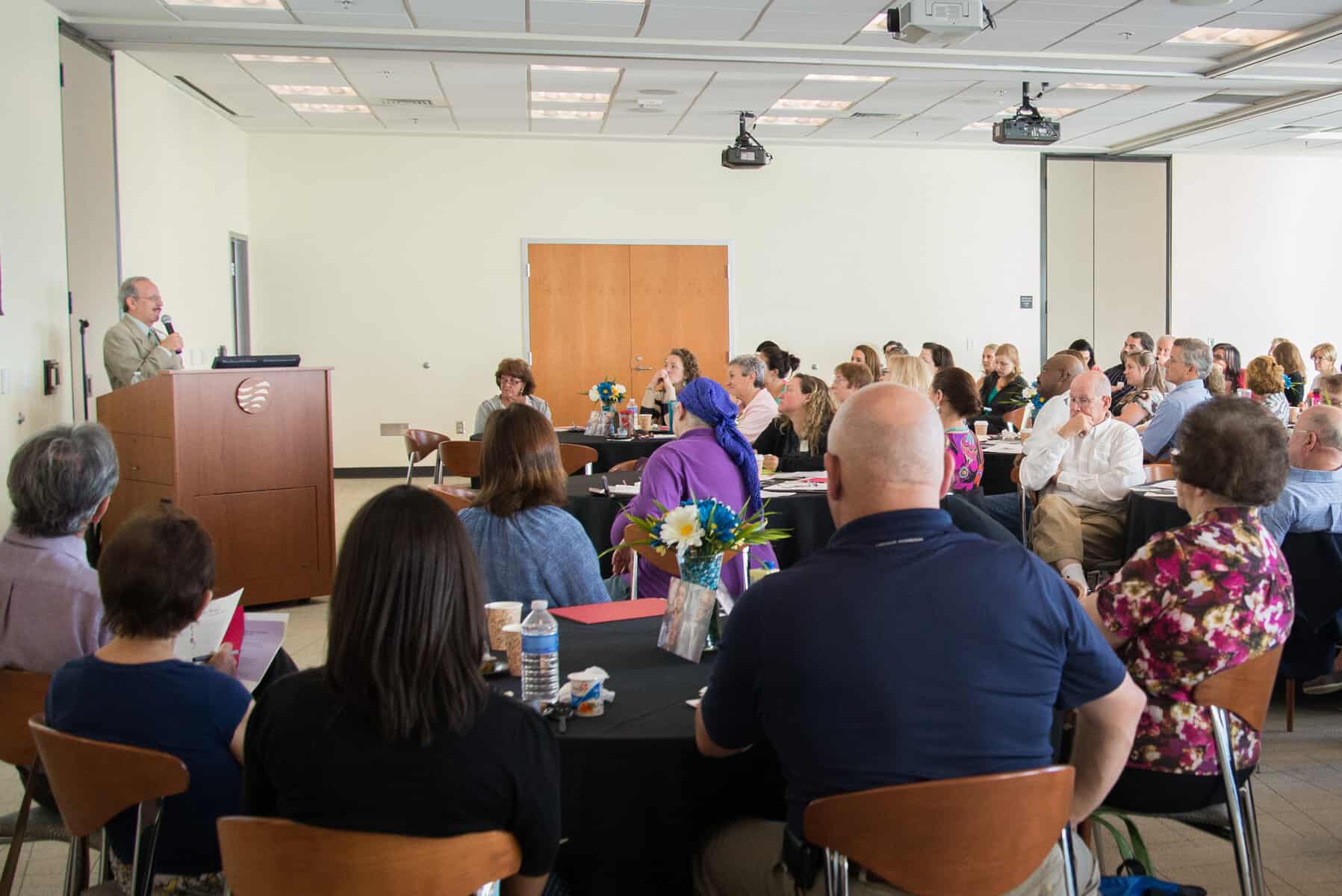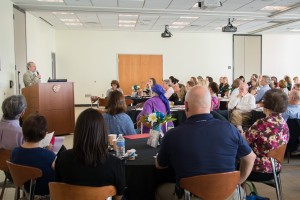In an information-packed and emotional two days, 75 educators, human rights activists, and interested community members explored the question posed by the 11th Biennial Educators’ Conference of the Holocaust Commission of the United Jewish Federation of Tidewater: Why Care?
Held on August 5 and 6, the conference included presentations from nationally- known speakers Jud Newborn and Linda Hurwitz, local Holocaust survivors Dana Cohen and Kitty Saks, film screenings, interactive demonstrations of classroom exercises, and a special tour of the Virginia Holocaust Museum in Richmond.
“This conference is a perfect homage to who we are as a Commission, representing the heart and soul of Holocaust education, and letting the community know what we do and the resources we can give them,” says Gail Flax, co-chair of the event with Dale Jacobs.
Both Flax and Jacobs say that they felt participants came away from the twoday experience more knowledgeable and empowered. Holocaust Commission director Elena Barr Baum agrees, and says the impact on participants was tangible.
“One of the best things someone said to me was that they couldn’t remember two days when they’d learned more,” says Baum. “We are very fortunate to have the support of the Sam and Reba Sandler Family Foundation, which has helped underwrite this conference for many years, enabling a broad range of educators to receive this outstanding opportunity to pass on the lessons of the Holocaust to their students.”
Conference attendees came from as far away as southern North Carolina, western Virginia, Northern Virginia, and from as close as the United Hebrew School.
Lohrer Mise, an English teacher at Windsor High School in Windsor, Va., says she was initially interested in the conference because of the continuing education credits she would receive and its affordability.
“This was my first time attending an educational conference dealing with the Holocaust and I wasn’t sure what to expect,” says Mise. “I got so much more than I thought—materials and activities to use in our classrooms, and a chance to hear inspirational presenters and survivors sharing their stories.
“We were challenged to do something about injustice and cruelty to our fellow humans, and to let what happened to these people and others motivate us to advocate more for human rights. I will pay more attention now, and I will see how I can get more involved. I wasn’t especially looking forward to school starting again, but now I can’t wait, and I’m anxious to start using all of this new material!”
Jud Newborn, founding Historian of New York’s Museum of Jewish Heritage, talked to participants about the subject of his book, Sophie Scholl and the White Rose.: “Once you understand and convey the nature of the Holocaust and its uniqueness and how enormous it was, you can then use it as a case study in order to understand what’s going on in the 21st century. What do we need to do in order to focus on issues that relate to human rights abuse at home and abroad? How can we raise consciousness? And beyond that, how can we learn to take action?”
Child of survivors, Holocaust educator, and school administrator, Linda Hurwitz, brought all of these roles to bear on her presentation, Voices of Remembrance, through which she discussed how to use survivor testimony to teach the Holocaust.: “Human beings have an amazing capacity to rebuild and go on in life, and that’s what I think young people, old people, everybody can be inspired by–these survivors are the true superheroes.
The universal lesson is that we have to treat every person with dignity and respect.


